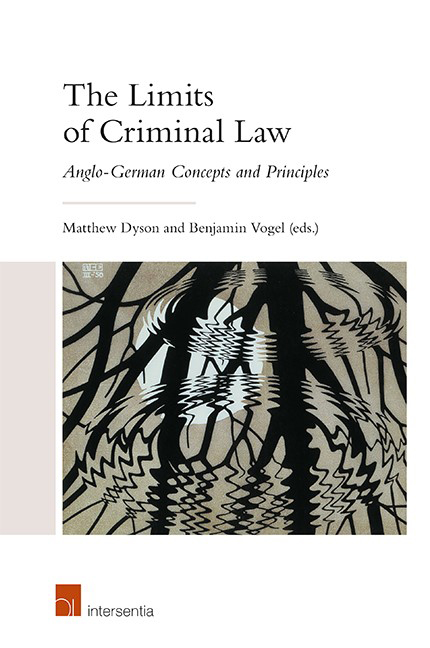Book contents
- Frontmatter
- Preface
- Contents
- List of Cases
- List of Abbreviations
- List of Contributors
- Chapter 1 Introduction
- PART I CORE PRINCIPLES OF CRIMINAL LAW
- PART II CRIME AND TORT
- PART III CRIME AND MEDICAL
- PART IV CRIME AND REGULATION
- PART V ADMINISTRATIVE SANCTIONS
- PART VI ALTERNATIVE ENFORCEMENT
- PART VII COUNTER-TERRORISM
- PART VIII CRIME AND INTELLIGENCE
- PART IX CONCLUSION
- Index
- About the Editors
Chapter 7 - Crime and Tort Compared: The Place of Civil Liability
Published online by Cambridge University Press: 11 February 2021
- Frontmatter
- Preface
- Contents
- List of Cases
- List of Abbreviations
- List of Contributors
- Chapter 1 Introduction
- PART I CORE PRINCIPLES OF CRIMINAL LAW
- PART II CRIME AND TORT
- PART III CRIME AND MEDICAL
- PART IV CRIME AND REGULATION
- PART V ADMINISTRATIVE SANCTIONS
- PART VI ALTERNATIVE ENFORCEMENT
- PART VII COUNTER-TERRORISM
- PART VIII CRIME AND INTELLIGENCE
- PART IX CONCLUSION
- Index
- About the Editors
Summary
The fields of crime and tort are commonly thought to have a great deal in common in practice, particularly in how they try to regulate future behaviour and respond to wrongs that have already happened. However, despite this commonality, fascinating questions in fact remain about how legal systems see the limits of criminal law compared to civil actions, which typically seek damages, rather than punishment. English and German law have adopted vastly divergent legal frameworks, which in turn affects which questions press hardest for attention within each system.
WHAT THE LIMITS ARE LIMITING
The normative principles underpinning the limits of criminal and civil law can first be seen with how any distinction between the two has been justified and delimited. Consequently, both crime and tort chapters start out by trying to understand how the border between the two has been drawn, and why. Each sets out a lot of interesting material, from the formal clarity asserted through to the practical uncertainty on the border in specific places. The outcome of each legal system's engagement with the issue seems to come to the same place: that a working distinction is derived which satisfies the immediate needs of the system but which could not be called intellectually rigorous or comprehensive. Both systems imbue the distinction with some similar features, though it seems that there are different connotations and differences in emphasis in both countries. In terms of substance, the object of crime and tort appears to be similar. Both deal with wrongdoing. Both countries’ criminal law is usually characterised and delimited by its punitive, inherently stigmatising, consequences: payment of a fine, imprisonment or similar. Tort law, on the other hand, provides for compensation; analysis beyond this, as to what underlying rights and interests are being protected, and how, is a matter of great controversy in England, but not in Germany. In both legal systems, we see limits constraining the substantive and instrumental scope of criminal law and tort; in criminal law the limits are stricter. In this sense criminal law, among the many enforcement and sanctioning tools states have at their disposal, is constrained to a narrow, limited but very exclusive function. No other instrument expresses the same kind of stigma.
- Type
- Chapter
- Information
- The Limits of Criminal LawAnglo-German Concepts and Principles, pp. 141 - 146Publisher: IntersentiaPrint publication year: 2020



